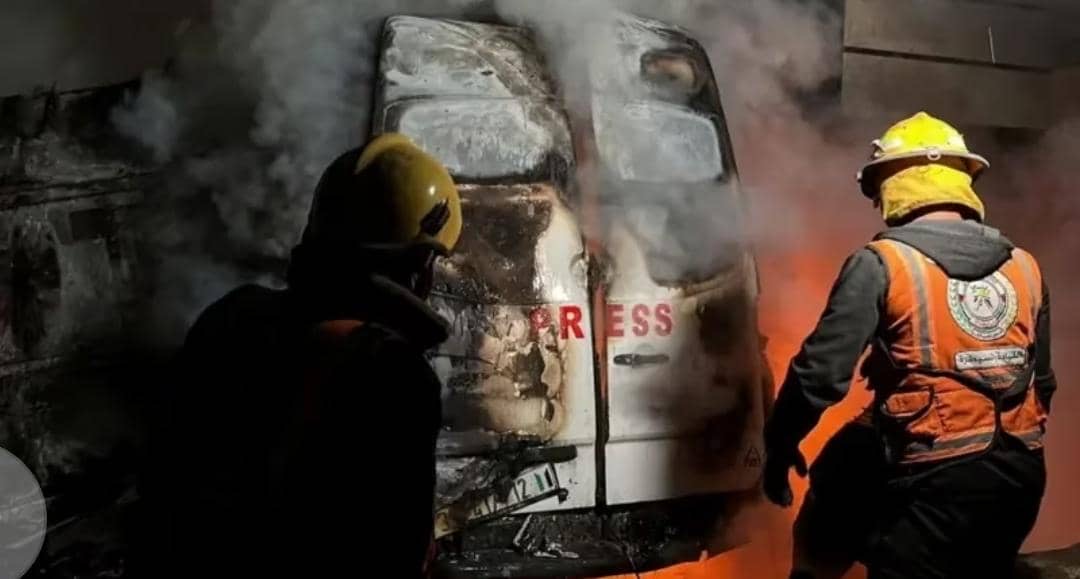OSLO – Global warming is heating the Arctic almost twice as fast as the rest of the planet in a thaw that threatens the livelihoods of millions of people and could wipe out polar bears by 2100, an eight-nation report said yesterday.
The biggest survey to date of the Arctic climate, by 250 scientists, said the accelerating melt could be a foretaste of wider disruptions from a build-up of human emissions of heat-trapping gases in the earth’s atmosphere. The “Arctic climate is now warming rapidly and much larger changes are projected”, according to the Arctic Climate Impact Assessment (ACIA), funded by the United States, Canada, Russia, Denmark, Iceland, Sweden, Norway and Finland.Arctic temperatures are rising at almost twice the global average and could leap 4-7 Celsius by 2100, roughly twice the global average projected by UN reports.Siberia and Alaska have already warmed by 2-3 C since the 1950s.Possible benefits like more productive fisheries, easier access to oil and gas deposits or trans-Arctic shipping routes would be outweighed by threats to indigenous peoples and the habitats of animals and plants.Sea ice around the North Pole, for instance, could almost disappear in summer by the end of the century, it said.The extent of the ice has already shrunk by 15-20 percent in the past 30 years.”Polar bears are unlikely to survive as a species if there is an almost complete loss of summer sea-ice cover,” the report said.On land, creatures like lemmings, caribou, reindeer or snowy owls are being forced north into a narrower range.The report mainly blames the melt on gases from fossil fuels burnt in cars, factories and power plants.The Arctic warms faster than the global average because dark ground and water, once exposed, traps more heat than reflective snow and ice.”Changes in the Arctic provide an early indication of the environmental and societal significance of global warming,” it said.The thaw will have a global impact — melting of glaciers will raise global sea levels by about 10 cm by the end of the century.Many of the four million people in the Arctic are already affected.Buildings from Russia to Canada have been demolished because of subsidence linked to thawing permafrost that also destabilises oil pipelines, roads and airports.Indigenous hunters are falling through thinning ice and say that prey from seals to whales is harder to find.Rising levels of ultra-violet radiation may cause cancers.Changes under way in the Arctic “present serious challenges to human health and food security, and possibly even (to) the survival of some cultures”, the report says.Even so, farming could benefit in some areas, while more productive forests are moving north onto former tundra.Scientists will meet in Iceland this week to discuss the report.Foreign ministers from Arctic nations are due to meet in Iceland on November 24 but diplomats say they are deeply split with Washington least willing to make drastic action.President George W Bush pulled the United States, the world’s top polluter, out of the 126-nation Kyoto protocol in 2001, arguing that its curbs on greenhouse gas emissions were too costly and unfairly excluded developing nations.The Arctic report said some of the projected changes were inevitable but added “many longer-term impacts could be reduced significantly by reducing global emissions over the course of this century”.- Nampa-ReutersThe “Arctic climate is now warming rapidly and much larger changes are projected”, according to the Arctic Climate Impact Assessment (ACIA), funded by the United States, Canada, Russia, Denmark, Iceland, Sweden, Norway and Finland.Arctic temperatures are rising at almost twice the global average and could leap 4-7 Celsius by 2100, roughly twice the global average projected by UN reports.Siberia and Alaska have already warmed by 2-3 C since the 1950s.Possible benefits like more productive fisheries, easier access to oil and gas deposits or trans-Arctic shipping routes would be outweighed by threats to indigenous peoples and the habitats of animals and plants.Sea ice around the North Pole, for instance, could almost disappear in summer by the end of the century, it said.The extent of the ice has already shrunk by 15-20 percent in the past 30 years.”Polar bears are unlikely to survive as a species if there is an almost complete loss of summer sea-ice cover,” the report said.On land, creatures like lemmings, caribou, reindeer or snowy owls are being forced north into a narrower range.The report mainly blames the melt on gases from fossil fuels burnt in cars, factories and power plants.The Arctic warms faster than the global average because dark ground and water, once exposed, traps more heat than reflective snow and ice.”Changes in the Arctic provide an early indication of the environmental and societal significance of global warming,” it said.The thaw will have a global impact — melting of glaciers will raise global sea levels by about 10 cm by the end of the century.Many of the four million people in the Arctic are already affected.Buildings from Russia to Canada have been demolished because of subsidence linked to thawing permafrost that also destabilises oil pipelines, roads and airports.Indigenous hunters are falling through thinning ice and say that prey from seals to whales is harder to find.Rising levels of ultra-violet radiation may cause cancers.Changes under way in the Arctic “present serious challenges to human health and food security, and possibly even (to) the survival of some cultures”, the report says.Even so, farming could benefit in some areas, while more productive forests are moving north onto former tundra.Scientists will meet in Iceland this week to discuss the report.Foreign ministers from Arctic nations are due to meet in Iceland on November 24 but diplomats say they are deeply split with Washington least willing to make drastic action.President George W Bush pulled the United States, the world’s top polluter, out of the 126-nation Kyoto protocol in 2001, arguing that its curbs on greenhouse gas emissions were too costly and unfairly excluded developing nations.The Arctic report said some of the projected changes were inevitable but added “many longer-term impacts could be reduced significantly by reducing global emissions over the course of this century”.- Nampa-Reuters
Stay informed with The Namibian – your source for credible journalism. Get in-depth reporting and opinions for
only N$85 a month. Invest in journalism, invest in democracy –
Subscribe Now!






